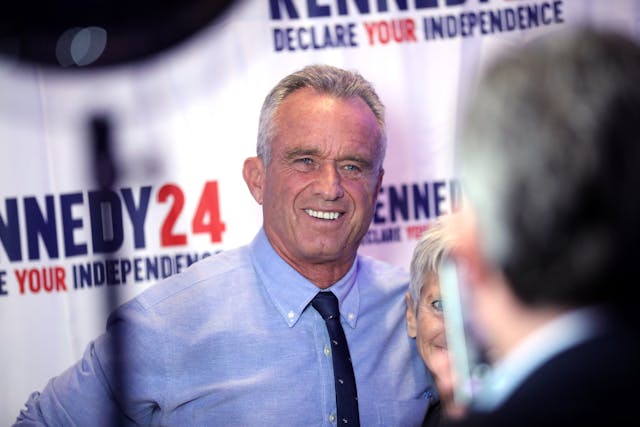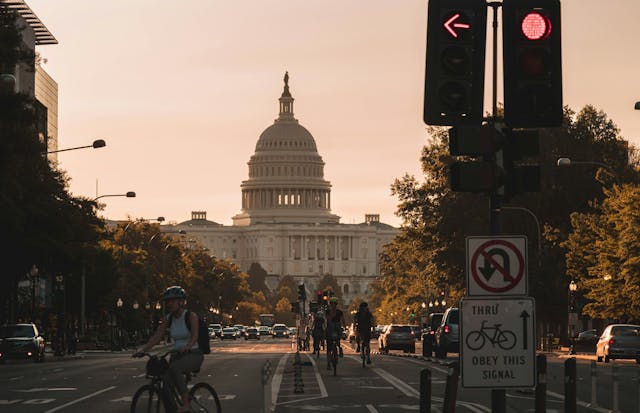Iraq, Obamacare, and Deficits: 3 Issues Slipping off the Public's Radar

Media attention moves at crazy speeds in today's world. One moment, the focus is on Ebola scares around the world; the next, a new Nicki Minaj video.
However, America's policies don't move that fast, and many issues are becoming yesterday's news before they've reached anything approaching a resolution, according to Stephen Farnsworth, professor of Political Science and International Affairs at the University of Mary Washington.
"You end up with a situation where lots of really big issues -- in terms of what America focuses on and spends money on -- don’t get discussed very much," he said.
One issue Farnsworth highlighted was America's foreign policy, particularly in the Middle East.
"We aren’t getting nearly enough discussion on what’s going on in Iraq and Iran with ISIS," he said. "We could be looking at a movement that is more dangerous and more violent than al-Qaeda and the Taliban combined."
When issues of foreign policy get short-changed in the national spotlight, Farnsworth suggested, it can lead to disastrous results.
"We didn't know much about Iraq before the U.S. invaded, and it turned out to be quite a bit different than the Bush administration said it would be," he said.
Data released by Pew in July showed that 55 percent of Americans say the U.S. has no responsibility to do something about violence in Iraq, while 39 percent say the U.S. does have a responsibility.
It's not just foreign policy that Americans lose interest in after a while.
Jake Haselswerdt, a Robert Wood Johnson Scholar in Health Policy Research at the University of Michigan, pointed to the ongoing implementation of the Affordable Care Act (ACA) as something that has slipped from the public eye.
"It might actually be a good thing," he said. "Having the law be the primary ideological and partisan battleground for years doesn't seem to have been very productive for health policy."
A Gallup report in May showed the ACA holding steady with a 43 percent approval rate. Pew data from the same month showed 41 percent approval.
It's important to keep the public aware of the issue, Haselswerdt said, because some states still oppose the law.
"In order for the more stubborn states to move forward with implementation and expanding care, there may need to be some continued pressure," he said. "That's going to require the media to pay attention to the big disparities that are emerging between states that tried to implement the law and those that resisted."
Finally, Farnsworth pointed to the federal deficit as the biggest domestic issue America needs to focus on.
"We really have not had a serious conversation in this country about the level of government we want to pay for," he said. He also critiqued news organizations for shaping national conversation in a way that focuses on visuals and drama.
"When you have police in riot gear in St. Louis, that’s compelling television," he said. "Because doesn't lend itself to these images, we don’t have a serious conversation about the level of government we’re willing to pay for.""As time goes on, the attention span shrinks," he added. "It used to be, we had at least 90 seconds to talk about a policy issue. Now, we have 140 characters. As trivial as television was, compared to Twitter it’s Tolstoy."
Haselswerdt disagreed, however, pointing out that increased media attention does not necessarily result in better policies.
"I don't think the deficit needs any additional attention, particularly if attention means more shutdowns or debt ceiling crises," he said. "If there was some kind of basis for bipartisan compromise on improving the long-term fiscal picture, great -- but there isn't."
He also argued that focusing attention on the deficit can lead to reactionary policies.
"There's been some modest progress on this front in the last few years, buoyed by a slowly improving economy," he said. "In any case, it's not clear to me that deficits are an urgent policy problem that needs to be solved in the near term. The consequences of government by crisis appear much more dire than the consequences of deficits."
A Pew report in January showed that reducing the federal deficit had declined on the public's list of priorities for the first time since President Obama was elected in 2008.
Photo Credit: Iculig / shutterstock.com



